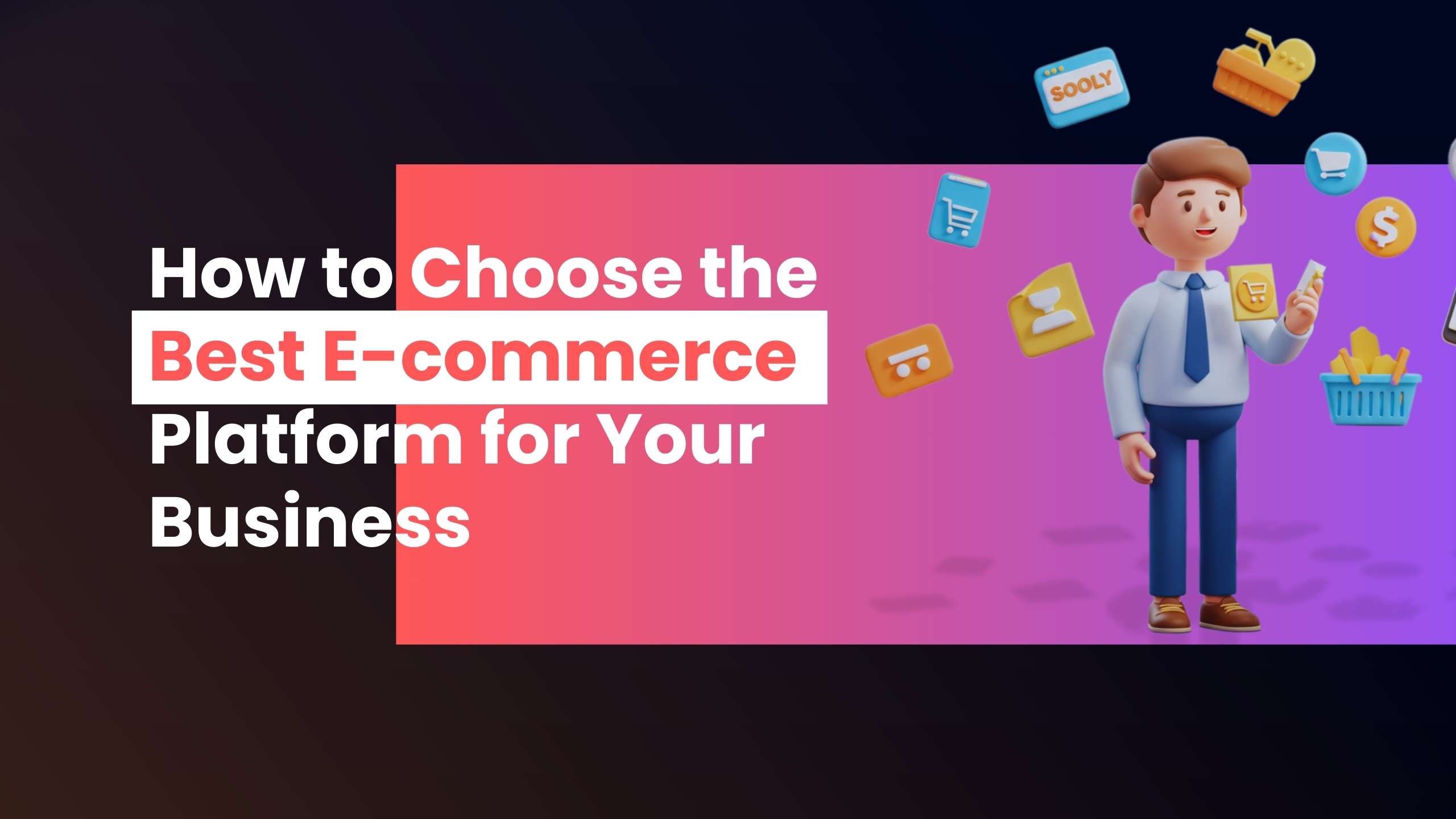How to Choose the Best E-commerce Platform for Your Business
Introduction
The foundation of a successful online store starts with the right e-commerce platform. Whether you're a small business owner or an entrepreneur with big dreams, your platform choice determines your site's functionality, scalability, and customer experience. But with so many options out there, how do you pick the best one? Here's your guide to navigating this critical decision.
- Assess Your Business Needs
Every business has unique requirements. Understanding your goals will help narrow down your choices:
- Size of your catalog: How many products do you plan to sell?
- Budget: Are you looking for a cost-effective or premium solution?
- Growth plans: Can the platform scale with your business?
Pro Tip: Small businesses can start with Shopify, while enterprises may benefit from platforms like BigCommerce or Magento.
- Prioritize User-Friendly Interfaces
Not a tech expert? Choose a platform with an intuitive interface:
- Drag-and-drop builders for easy store design.
- Pre-designed themes to give your store a professional look.
- Minimal coding required for basic functionality.
Example: Platforms like Wix and Squarespace are known for their ease of use.
- Explore Payment Gateway Options
A smooth checkout process is vital for sales. Ensure your platform supports multiple payment gateways:
- Credit/debit cards, PayPal, and Apple Pay.
- Local payment options if you sell internationally.
- No hidden fees or high transaction charges.
Tip: Shopify Payments and WooCommerce Payments are great in-built options.
- Evaluate Scalability and Customization
Your platform should grow as your business expands. Look for:
- Unlimited product listings and storage.
- Customizable features to suit your branding needs.
- Integration options with other tools like CRMs and email marketing platforms.
Example: WordPress (via WooCommerce) offers unlimited customization but requires more technical knowledge.
- Look for Built-In Marketing Tools
Marketing is the backbone of e-commerce success. Your platform should support:
- SEO optimization: Custom meta tags, sitemaps, and URLs.
- Email marketing tools for customer retention.
- Social media integration to drive traffic.
Tip: Platforms like BigCommerce and Shopify offer excellent marketing add-ons.
- Prioritize Mobile Optimization
Mobile commerce is on the rise. Ensure your platform:
- Provides mobile-responsive themes.
- Supports mobile app creation.
- Delivers a seamless shopping experience on all devices.
- Research Customer Support and Community
Reliable support can save you time and headaches:
- 24/7 chat or phone support.
- Active online forums or communities for troubleshooting.
- Comprehensive help centers with tutorials and FAQs.
Example: Shopify and Wix excel in customer support.
- Test Before You Commit
Take advantage of free trials or demos to explore features firsthand:
- Evaluate the platform’s speed, design options, and ease of setup.
- Run test purchases to experience the customer journey.
Conclusion
Choosing the best e-commerce platform is a decision that shapes the future of your online store. Focus on your business needs, scalability, and customer experience to make an informed choice. Remember, there’s no one-size-fits-all—pick the platform that aligns with your unique goals and vision.

